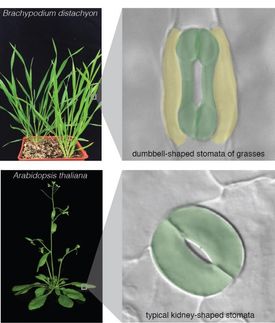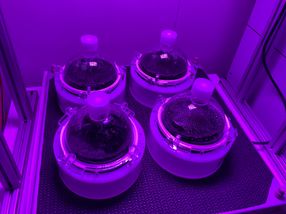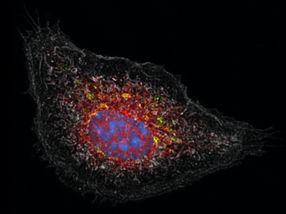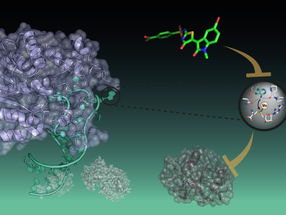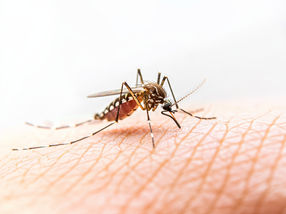Cornell Chronicle: NSF plant genome program awards
Researchers receive $9.4 million from NSF for maize and rice genomics projects
A team of Cornell researchers will develop a tool to knock out genes in maize and another team will sequence wild rice genes, identify their functions and insert key genes into cultivated lines for breeders, thanks to multimillion-dollar grants from the National Science Foundation (NSF).
Thomas Brutnell, a scientist at Boyce Thompson Institute (BTI) on Cornell's campus and adjunct associate professor in plant breeding and genetics, leads a team that received a three-year, $2.5 million NSF Plant Genome Research grant to develop a way for Ds transposons, or jumping genes, to knock out other genes at desired locations. By knocking out specific genes, maize researchers can better understand that gene's purpose. Such a tool could help scientists understand how drought or salt tolerance works or find lines that are more efficient at water and nitrogen uptake, for example.
Brutnell and colleagues will also create a public website where other researchers can look up a gene of interest and scan for the closest insertion point for Ds. The project includes a community service component - any researcher can order maize lines from BTI that include a Ds transposon inserted near a candidate gene, or request that the Brutnell lab screen for Ds insertions in their favorite gene.
"They [researchers] will pay up to $2,000 when we deliver a Ds insertion into their gene, which covers the cost of labor for my lab," said Brutnell. By offering the service, "we're going to fine-tune this protocol and publish our results enabling other groups to take advantage of the system," he added. Brutnell's lab will also continue to use the technique to knock out genes related to photosynthesis, a research interest in his group.
Susan McCouch, Cornell professor of plant breeding and genetics, leads a team that received a four-year, $6.9 million grant to explore natural variation in wild and cultivated rice varieties as the basis for accelerating the process of plant breeding to enhance the productivity and sustainability of rice production throughout the world.
Wild rice varieties have adapted to changing environments over many thousands of years and contain alleles that have been bred out of cultivated varieties. "Wild ancestors embody more genetic variation than cultivars, and they are a rich source of alleles that are useful for breeding," said McCouch. "Our work has shown that wild alleles can enhance the productivity of modern rice cultivars by 10 to 20 percent, and we are only beginning to explore this potential."
Using wild rice samples from 14 countries, the researchers will evaluate the range of genomic diversity using next-generation sequencing, and the most divergent wild samples will be used to make crosses with cultivated varieties. The offspring of these crosses will be evaluated to identify plants that can resist such stresses as drought, salt, acid soils, extreme temperatures and disease, and to identify genes from the wild materials that confer these characteristics. The project will develop analysis tools and computer models to predict how specific genes control complex traits and will make lines of cultivated rice that incorporate beneficial wild rice alleles available to the breeding and genetics community.
Most read news
Topics
Organizations
Other news from the department science

Get the life science industry in your inbox
From now on, don't miss a thing: Our newsletter for biotechnology, pharma and life sciences brings you up to date every Tuesday and Thursday. The latest industry news, product highlights and innovations - compact and easy to understand in your inbox. Researched by us so you don't have to.
